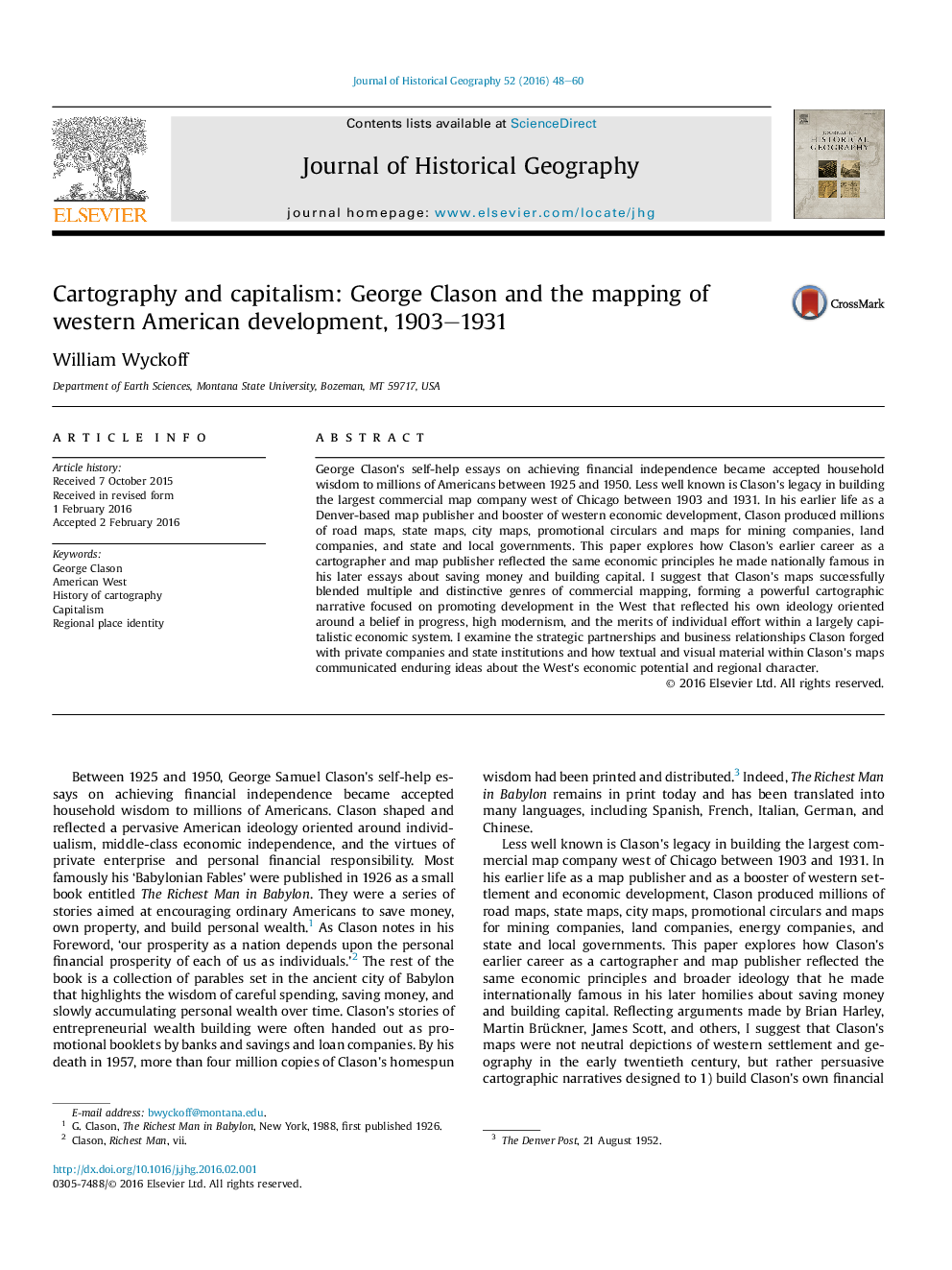| Article ID | Journal | Published Year | Pages | File Type |
|---|---|---|---|---|
| 1038928 | Journal of Historical Geography | 2016 | 13 Pages |
•Describes the cartographic output of the Clason Map Company, Denver, Colorado, 1903–1931.•Reconstructs how Clason's maps were used to promote economic development.•Argues that Clason's diverse cartographic output blended different genres of commercial mapping.•Assesses how Clason's maps reflected his ideology of capitalism in the American West.•Develops tools of assessing historical map content and meaning.
George Clason's self-help essays on achieving financial independence became accepted household wisdom to millions of Americans between 1925 and 1950. Less well known is Clason's legacy in building the largest commercial map company west of Chicago between 1903 and 1931. In his earlier life as a Denver-based map publisher and booster of western economic development, Clason produced millions of road maps, state maps, city maps, promotional circulars and maps for mining companies, land companies, and state and local governments. This paper explores how Clason's earlier career as a cartographer and map publisher reflected the same economic principles he made nationally famous in his later essays about saving money and building capital. I suggest that Clason's maps successfully blended multiple and distinctive genres of commercial mapping, forming a powerful cartographic narrative focused on promoting development in the West that reflected his own ideology oriented around a belief in progress, high modernism, and the merits of individual effort within a largely capitalistic economic system. I examine the strategic partnerships and business relationships Clason forged with private companies and state institutions and how textual and visual material within Clason's maps communicated enduring ideas about the West's economic potential and regional character.
